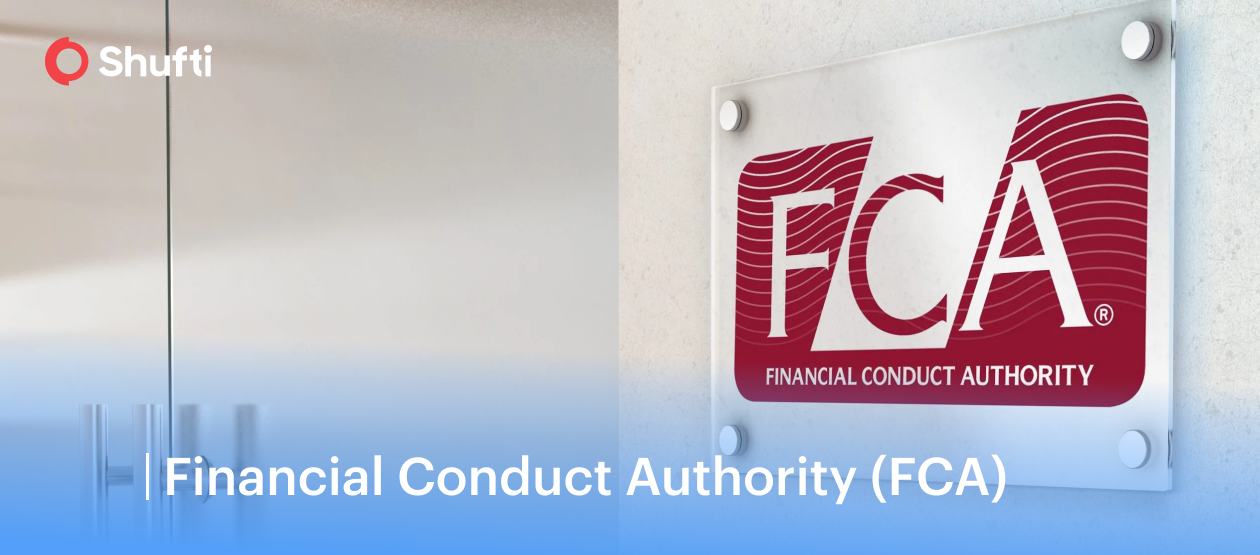Financial Conduct Authority (FCA)

Trust is everything in the modern, complicated world of finance. Banking, insurance, cryptocurrency, and digital payments will require that people are treated fairly, transparently, and that they are shielded against fraud. The core of the provision of this in the United Kingdom is the Financial Conduct Authority (FCA), a regulatory institution that is crucial in the protection of the consumer, healthy competitiveness, and financial crime prevention.
The FCA has become more relevant with the financial environment becoming more global and digital. It can be anti-money laundering compliance, cryptoasset regulation, or consumer protection regulations; either way, the FCA defines the manner in which firms are expected to conduct their business to ensure the integrity of the UK financial system.
What is the Financial Conduct Authority (FCA)?
The Financial Conduct Authority (FCA) is the independent financial market and firm regulator in the UK. It was founded in 2013 as a replacement for the Financial Services Authority (FSA) after the global financial crisis of 2008. It regulates over 50,000 financial services firms across the UK.
The FCA, like most regulators, is independent of the government but is answerable to the UK Treasury and Parliament. The main purpose of its work is to make sure that delivery of financial services is fair, transparent, and safe to consumers, as well as to make the UK a competitive and reliable global financial hub.
Why the FCA Matters
The FCA is set up to address three vital issues in financial markets:
- Maintaining fair treatment of individuals and businesses by financial institutions, Protecting Consumers.
- Keeping Markets Honest, Avoiding malpractice like fraud, insider trading, and market manipulation.
- Promoting Competition, encouraging innovation, and healthy competition, and eliminating monopolies that undermine the consumers and smaller companies.
For consumers, this means they have a trusted avenue to raise complaints, while for businesses, FCA compliance is a mark of credibility and integrity.
Key Responsibilities of the FCA
The FCA’s regulatory scope is broad, covering nearly all major financial activities in the UK. Its responsibilities include:
- The Financial Conduct Authority ensures that businesses comply with the country’s AML and CFT laws.
- Companies are obligated to obtain FCA authorization before they are allowed to offer regulated financial services.
- The FCA conducts ongoing monitoring to ensure that firms comply with rules such as MiFID II for investment firms and PSD2 for payment providers.
- It also enforces standards by issuing fines, revoking licenses, banning harmful products, or pursuing legal action against misconduct.
- In addition, the FCA provides platforms for consumer complaints and holds firms accountable for malpractices.
Firms Regulated by the FCA
The FCA regulates a large variety of financial organizations, including:
- Banks – Making sure that capital requirements and anti-money laundering (AML) regulations are adhered to.
- Insurance Companies – Oversight of reasonable prices and risk control actions.
- Investment Firms / Asset Managers – Compliance with MiFID II, transparency, and investor protection.
- Cryptocurrency Businesses – Cryptocurrency firms have to be registered by the FCA and abide by the AML regulations, which have been in force since 2020.
- Payment & E-Money Institutions – Regulated under PSD2 to guarantee secure, innovative, and competitive digital payment systems.
FCA Enforcement Powers
FCA has a reputation for having strong enforcement capabilities. Its powers include:
- Denying or withdrawing the license of non-compliant companies.
- Imposing significant financial penalties, sometimes in the hundreds of millions.
- Prosecute people for fraud or market abuse that may result in a jail term.
- Curtailing or prohibiting the marketing of risky financial products.
These measures serve as deterrents and corrective instruments, thus keeping players in the market answerable.
FCA and Anti-Money Laundering (AML)
Money laundering and terrorist financing are among the most significant threats to the global community, and the FCA is critical in preventing them with the help of Money Laundering Regulations (MLR 2017). Under these rules, firms must:
- Conduct Know Your Customer (KYC) checks to identify identities.
- Use Customer Due Diligence (CDD) to monitor client activity and assess associated risk
- Conduct sanctions screening to prevent business with limited parties.
- Report Suspicious Activity (SARs) and conduct enhanced due diligence.
These are requirements that are aimed at mitigating risks related to digital identity fraud and financial crime prevention.
In July 2025, the FCA fined Monzo Bank over £21 million for failing to maintain adequate anti-money laundering systems.
Cryptoasset Regulation by the FCA
With the rise of cryptocurrencies, the FCA changed its framework to accommodate cryptoasset businesses. As of January 2020, any firm conducting cryptoasset business in the UK should:
- Register with the FCA
- Adopt AML and counter-terrorist financing (CTF) measures.
- Monitor suspicious transactions.
- Adhere to the FATF Travel Rule that mandates the disclosure of the sender and recipient information in crypto transfer.
Through regulation of this risky industry, the FCA aims to stop blockchain fraud and protect consumers in the fast-developing industry.
Final Thought
The Financial Conduct Authority is more than just a regulator; it is the backbone of trust in the UK financial system. Crypto regulation, AML compliance, and consumer protection through rigorous standards ensure the protection of both people and businesses, promoted by the FCA.
As technology evolves, from blockchain to artificial intelligence, the FCA continues to adapt its frameworks to address new risks. For firms, aligning with FCA standards is not only a legal obligation but also considered to be a competitive advantage in building customer trust.

 Explore Now
Explore Now






